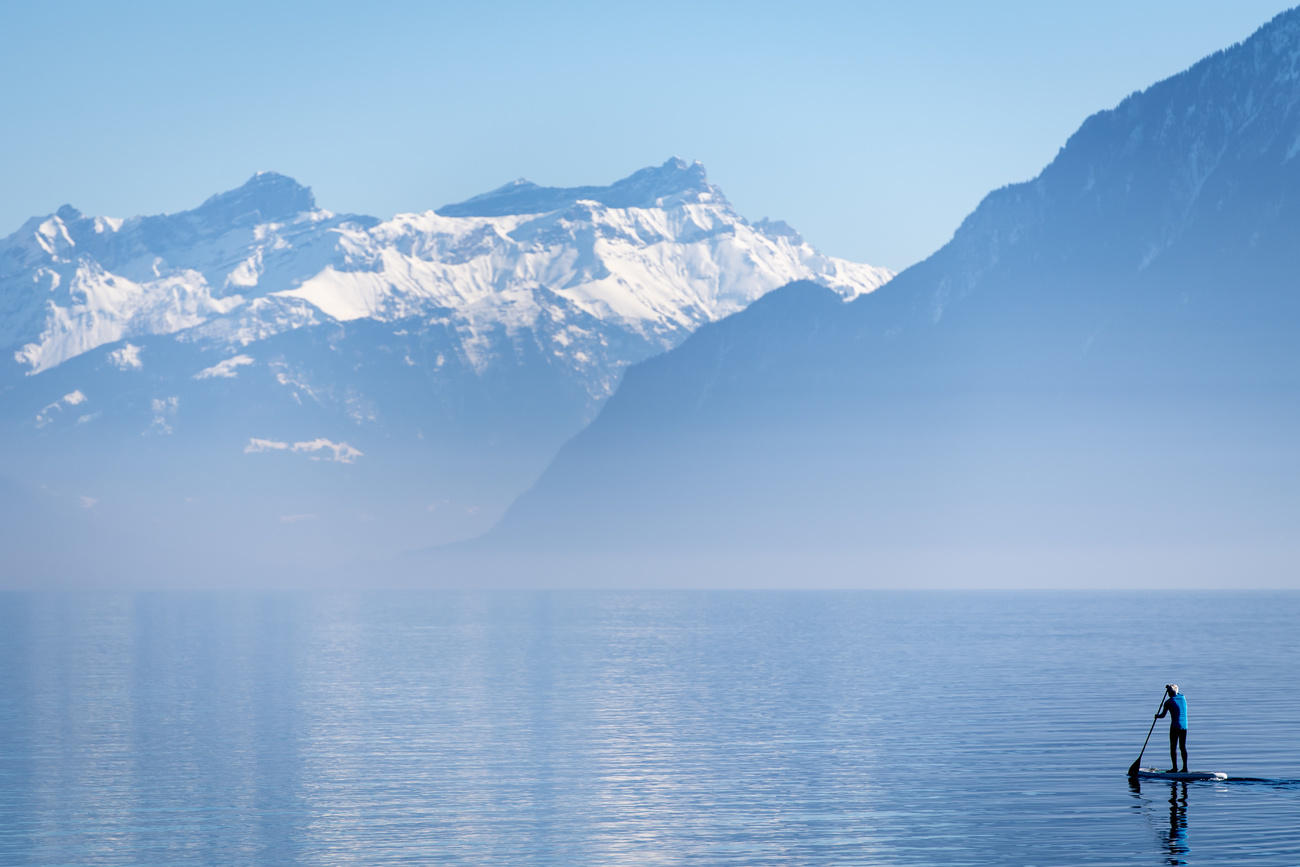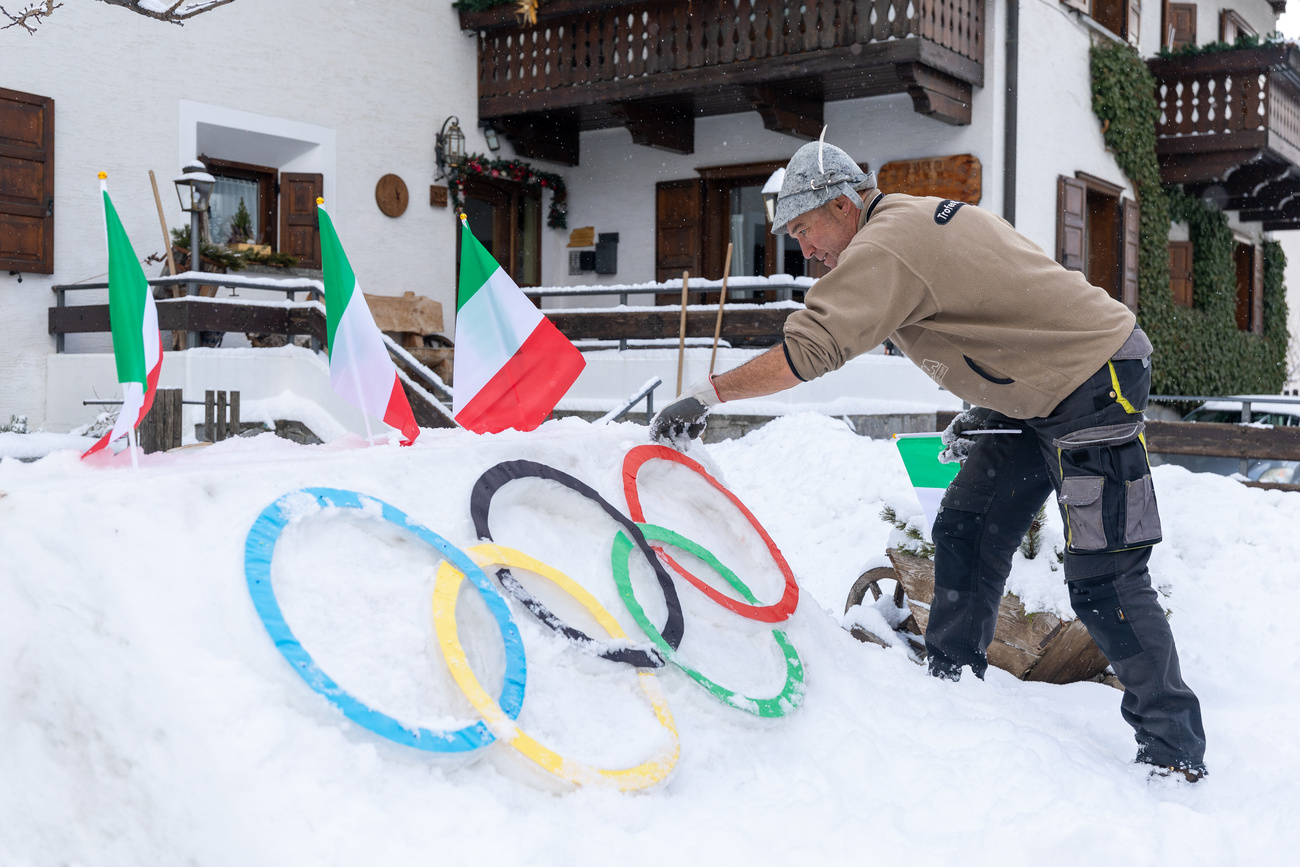
Large volumes of microplastics exist in Lake Geneva

The turquoise glory of Switzerland’s largest lake is less clean than it seems: a recent analysis by the Oceaneye group shows that Lake Geneva contains large quantities of plastic waste smaller than 20 centimetres.
Samples taken in 2018 across 14 locations reveal a rate of 129g/km2 of plastic waste 1-20mm in size, with a total of 14 million such particles floating in the Alps’ largest lake.
The numbers put Lake Geneva firmly in the same category as bodies of water such as the Mediterranean. The global average for sea pollution is 160g/km2.
Researchers from Oceaneye told Swiss public television RTS that it was difficult to pin down the biggest source of the plastic, though food packaging constitutes a big part.
They also explained that once large plastic pieces are in the water for some time, a combination of ultra-violet rays, wind, and wave pressure break them down into smaller and smaller particles difficult to eradicate.
“The major impact could be seen in fauna”, in particular digestion problems for animals swallowing such microplastics, said Gaël Potter, the association’s scientific director.
Bio-plastic
The findings, published on Sunday by Oceaneye, come the same week that a separate report by the Swiss Consumer Protection Foundation found that much Swiss produce in supermarkets still comes wrapped in plastic.
And while the report found that both Migros and Coop – the country’s biggest retailers – had made progress in reducing the plastic for conventional products (47% and 21%, respectively), organic produce, such as fruit and vegetables, was found to be the most plastic-heavy (100% and 78%, respectively).

In compliance with the JTI standards
More: SWI swissinfo.ch certified by the Journalism Trust Initiative































You can find an overview of ongoing debates with our journalists here . Please join us!
If you want to start a conversation about a topic raised in this article or want to report factual errors, email us at english@swissinfo.ch.